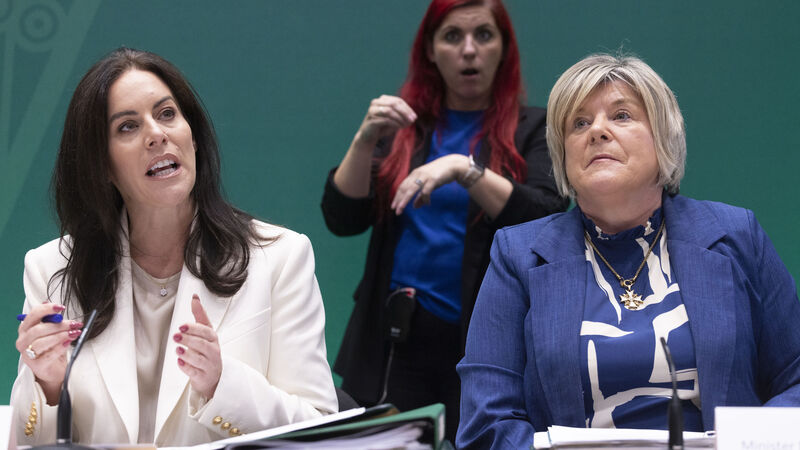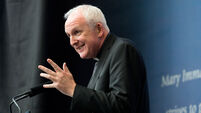Budget 2026 leaves questions over national cancer strategy funding, say campaigners

Minister for Health Jennifer Carroll MacNeill TD and Government Chief Whip and Minister of State at the Department of Health Mary Butler TD speaking in relation to Health in Budget 2026. Picture: Sam Boal/Collins Photos
The health budget has left vital questions unanswered, including how much can be spent on the national cancer strategy next year, commentators have warned.
Despite concerns about a lack of detail for some areas, patients in mental health crisis will benefit from new specialist nursing teams at evenings and weekends in large emergency departments. Other targeted changes include:













